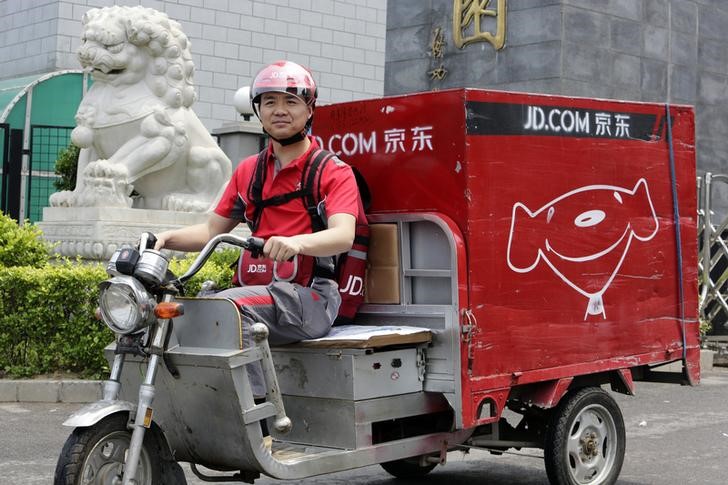By Paul Carsten
BEIJING (Reuters) - JD.com Inc, China's No. 2 e-commerce player, on Wednesday launched its JD Worldwide cross-border online shopping platform, a challenger to Alibaba (NYSE:BABA) Group Holding Ltd's Tmall Global service.
JD Worldwide will allow Chinese shoppers to buy imports from U.S. firms such as Nike Inc (NYSE:NKE), Starbucks Corp (NASDAQ:SBUX) and Ocean Spray Cranberries Inc, as well as products from countries like Australia, France, Germany, Japan, South Korea, New Zealand and the United Kingdom, JD.com said in a press release.
Overseas suppliers will provide more than 1,200 brands, without those merchants requiring a presence in China.
The venture adds to a host of online retail rivals for Alibaba and Amazon.com Inc (NASDAQ:AMZN) catering to fears about the quality and safety of Chinese goods after a number of scares, and comes on the back of a Chinese government push to promote e-commerce and relax import restrictions.
But JD.com still trails far behind Alibaba in Chinese e-commerce. Alibaba's high profile since its record-breaking $25 billion (16.9 billion pound) U.S. listing in September is a huge lure for brands looking to enter or raise their presence in China, which some analysts estimate as the world's biggest online shopping market.
"Imported goods have always been huge sellers on JD.com, and this massively expands the range of products available to Chinese consumers," said Leo Li, who oversees JD Worldwide, in an e-mail to Reuters.
Using China's e-commerce free trade zones and the firm's own logistics network, JD.com can "offer international brands a direct channel to Chinese consumers with preferential tax rates to make prices highly competitive," he said, adding that JD.com would also do marketing for its overseas partners.
"We are currently providing free advertising so that they get good traffic and don't become ghost stores. We're playing the long game with our partners."
JD.com, backed by Alibaba arch-rival Tencent Holdings Ltd, also said it launched with eBay Inc (NASDAQ:EBAY) a programme to allow Chinese shoppers to buy select goods from U.S. eBay sellers.
A spokeswoman for eBay confirmed the partnership.
Shares of JD.com, which markets itself as a seller of authentic goods, have risen 44 percent since the beginning of the year. Alibaba's stock price, on the other hand, has fallen 18 percent in the same period.

Analysts have expressed concern over counterfeits on the world's largest e-commerce firm's platforms, as well as lacklustre earnings and investor excitement wearing off after the initial public offering.